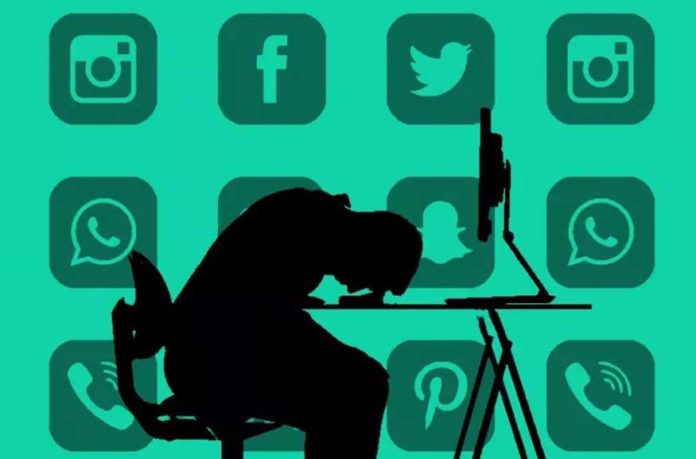Disclaimer: The Eqbal Ahmad Centre for Public Education (EACPE) encourages critical and independent thinking and believes in a free expression of one’s opinion. However, the views expressed in contributed articles are solely those of their respective authors and do not necessarily reflect the position or policy of the EACPE.
Today’s children are raising while using iPads, laptops and mobiles – something their elders take pride in noticing their kids being so tech savvy. Surely, they must, because it is good as from perspective of current technological era, but the way the teenagers use the social networking is actually becoming awful. The teenage way of life has completely changed – and not for good – as compared to what it was only two decades ago.
⚠ Social networking habits might be affecting your life more than you know.
Contrary to what its name suggests, social networking has been influencing social relationships with friends and family quite adversely. Here, I have tried to list some of the demerits of social media, and hope that all parents would probably take a stand with me.
Lack of Understanding and Thoughtfulness
Even after spending many hours online, you can’t necessarily understand emotions, feelings and character of the person you are taking to, especially when you are talking to someone via text message or voice messages. Social media communication has abolished thoughtfulness in conversation.
Decremented Face-to-Face Communication
Nobody can ignore the importance of good communication skills in life, whereas social networking is halting dialogue skills in daily routine. On the other hand, one’s dependence on social networking may hurt one’s ability to have face to face, critical and conceptual conversation. Also, it’s messing with your ability to think independently.
Sometimes, a person gets so much socially attached to something such as any online blog or gaming that he starts losing touch with his friends and even family. It creates disparity and distances in real life relationships and friendships. It is observed that the social networking has been preventing the real-life meeting day by day, and as a result people feel discomfort and disturbance.
Emotional Disconnection
The quality of conversation via social networking is somehow nasty because you can’t sense the true emotions or their authenticity from the other person. For instance: It was surprising for me when one of my friends kept ignoring me, and finally sent a text message after remaining silent for two weeks. I was still unsure whether she felt sorry in true sense or not, and consequently, it led to some verbal brawl. What appeared to be a big issue on textual communication was found not a big deal when we met in real, as it was settled comfortably.
Conversion Featured by Spurious Expression of Feelings
Take this common example: A guy writes to her friend “hahahah” or “LOL” and adds smileys to express a laughter, and the receiver assumes he’s laughing and happy. But we all know how many times we ourselves send such texts when we are not even smiling, let alone laughing in real life. According to Robin Dunbar, a psychologist at the University of Oxford, the actual or physical act of laughing is what makes laughing feel so good. Why are we so willing to replace laughing with shorthand or smiling emoticons – something which is synonym to an artificial representation that doesn’t even probe the same joy. What is its purpose? Peter F. Drucker, a renowned educator once said: “the most important things in communication is hearing what isn’t said”.
Convenience that Trends Laziness
One of my research fellows, who sits in the room next to mine, notifies me for the dinner via text, instead of walking a few feet to me. Social networking apparently makes life so convenient, but doesn’t it create laziness as well? Social media makes it easy to spend hours doing nothing. Ain’t it an antic way of wasting time and decreased productivity.
Creating a Skewed Self-Image
One day someone posts “Got married”, then some other day, he posts “Became a proud father”, then another day, posts “Looking for second marriage”. Similarly, another guy shares his status as, “Feeling disappointed”, or “Thinking about suicide”, and what other friends comment on such statuses often appear so non-serious and witty perhaps as an attempt to delight him without realizing that he actually needs professional counselling and moral support and that any humor could hurt him more. It seems social networking has given people license to be hurtful.
Moreover, we tell lies about ourselves and develop something we are not. We pose ourselves happy, rich, financially settled and doing all well in life even if the reality is opposite to our online image.
Affecting Family Closeness
Addiction to Facebook, Twitter, WhatsApp, gmail and other such social networking platforms estrange us from our families. When we have any family function at home, I myself and my brother too, remain glued to our cell phones rather than involving in the ongoing activity. Social media users keep posting selfies and family updates, but it’s actually a false sense of connection. Moreover, social media compromises our privacy as well.
Source of Distraction
A friend of mine uses social media, as a tool to feel popular and important. He and I always compare ourselves to each other, talking who has more Facebook friends or twitter followers. But what happens is that it distracts me from everything. I have started watching TV less, feeling lack of interest in doing homework and showing less desire in spending time with my friends and family.
The demerits of social networking are increasing each passing day. I understand that it’s up to the users to use it wisely, but isn’t it a fact that real life social relationships that define a basis for any society are getting affected. It is alarming for parents and challenges the collective conscience of the society to resort a connection between youth and society. Seminars, TV Shows and radio programs must host the researcher and experts to aware about harmful effects and disadvantages of social networking and they must propose ways to fix the issue.
What do you think?
 The writer, Irfan Khan, is a Researcher of Natural Sciences at Physics Department, Quaid-e-Azam University, Islamabad, Pakistan. He can be reached at ik8828903@gmail.com
The writer, Irfan Khan, is a Researcher of Natural Sciences at Physics Department, Quaid-e-Azam University, Islamabad, Pakistan. He can be reached at ik8828903@gmail.com








